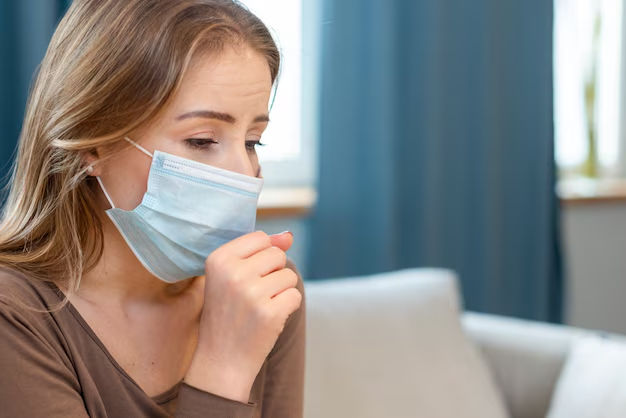RSV and Pneumonia: Understanding the Connection
Every winter, as respiratory illnesses spread, parents, caregivers, and health enthusiasts raise a critical question: Can Respiratory Syncytial Virus (RSV) lead to pneumonia? The answer isn't as straightforward as one might think, but understanding the nuances can help alleviate concerns and guide informed decisions.
What is RSV?
RSV, or Respiratory Syncytial Virus, is a common virus affecting the respiratory tract. It's a frequent culprit behind colds and flu-like symptoms, especially in young children. By age two, most children will have experienced RSV at least once. While generally not a cause for alarm, RSV requires attention as it can lead to more severe respiratory issues in certain populations.
Symptoms of RSV
Typical RSV symptoms are akin to those of a mild cold:
- Runny nose 🤧
- Cough 🤒
- Fever 🌡️
- Wheezing or shortness of breath
- Reduced appetite 🍽️
These symptoms seldom lead to severe consequences for healthy adults and older children. However, in infants, older adults, or those with weakened immune systems, RSV can develop into more serious conditions.
How RSV Can Progress
While RSV can be mild, it doesn't always stay that way. Let's delve into how RSV can transition into more severe health issues, with pneumonia being a significant concern.
From RSV to Bronchiolitis
Bronchiolitis is a condition where the small airways in the lungs become inflamed. It's the primary reason RSV is particularly notorious among infants and young children. Symptoms may include:
- Intense coughing
- Wheezing
- Severe breathing difficulties
From Bronchiolitis to Pneumonia
In some cases, if bronchiolitis induced by RSV is not managed properly, it can transition into pneumonia. Pneumonia is an infection that inflames the air sacs in one or both lungs, which may fill with fluid or pus, leading to:
- High fever 🌡️
- Persistent cough
- Shortness of breath 😮💨
- Chest pain
Who is Most at Risk?
While anyone can technically contract pneumonia from RSV, certain groups are at higher risk:
- Infants under six months 👶
- Premature babies
- Children with congenital heart or lung diseases
- Adults over 65 👴👵
- Individuals with weakened immune systems 💪
Understanding these risks can guide preventive measures, reducing the chance of RSV developing into pneumonia.
Preventing RSV and Its Complications
While it's nearly impossible to avoid RSV entirely, there are effective strategies to minimize its impact and prevent severe complications like pneumonia.
Hygiene Practices
Implementing excellent hygiene practices is crucial:
- Regular hand washing 🧼
- Disinfecting surfaces 🧽
- Avoiding close contact with sick individuals
Vaccination and Medical Advances
Unlike the flu, RSV currently doesn't have a widely available vaccine. However, scientists are developing shots to mitigate severe RSV effects, particularly for high-risk groups. Keep an eye on medical advances, as new prevention tools may be on the horizon.
Strengthen the Immune System
A robust immune system can help fight off infections. Encourage high-nutrient diets, adequate sleep, and regular physical activity.
Recognizing the Signs of Escalation
Acknowledging when RSV could be evolving into something more serious is vital. If a child or vulnerable adult exhibits any concerning symptoms, it's important to seek medical attention promptly.
Warning Signs to Watch For
Look for these signs:
- Rapid or labored breathing
- Bluish skin color due to lack of oxygen (cyanosis)
- Extreme lethargy or irritability
- Dehydration signs, such as reduced urination or tearless crying
Managing RSV and Seeking Support
If an RSV infection becomes severe, seeking professional healthcare support becomes crucial. Ensure that treatment focuses on relief from symptoms and prevention of complications.
Home Care Tips
For mild cases:
- Maintain hydration 💧
- Utilize a humidifier to ease breathing
- Use saline nasal drops for congestion relief
Professional Medical Interventions
For severe cases:
- Hospitalization may be necessary for supplemental oxygen or intravenous fluids
- Specialized treatments may be employed depending on individual needs
Final Reflections
RSV is a complex and unpredictable virus. While it typically presents with cold-like symptoms, under certain conditions, it can progress to pneumonia. Understanding the connection between these conditions empowers caregivers and individuals to take timely actions in prevention and management.
Staying informed and adopting preventive measures can significantly reduce the likelihood of severe outcomes from RSV infections.
🔑 RSV & Pneumonia: Quick Summary
- RSV Basics: Common respiratory virus, often mild like a cold.
- High-Risk Groups: Infants, elderly, and immunocompromised.
- Complications: Can lead to bronchiolitis and pneumonia.
- Prevention Tips:
- Practice good hygiene 🧼
- Follow emerging vaccine options
- Strengthen immunity 💪
- Warning Signs:
- Worsening breathing difficulties 😮💨
- Cyanosis (blue-tinted skin)
- Action Steps:
- Seek medical advice for severe cases
- Hydrate and humidify for mild cases
This proactive understanding can help navigate the challenges posed by RSV, especially during peak cold and flu seasons. Stay informed, stay prepared, and prioritize health. 🌟

Related Articles
- a Typical Pneumonia
- Can a Cold Turn Into Pneumonia
- Can a Sinus Infection Turn Into Pneumonia
- Can Amoxicillin Cure Pneumonia
- Can Amoxicillin Treat Pneumonia
- Can Baby Oil Cause Pneumonia
- Can Bronchitis Turn Into Pneumonia
- Can Covid Turn Into Pneumonia
- Can Doxycycline Treat Pneumonia
- Can Flu Turn Into Pneumonia
